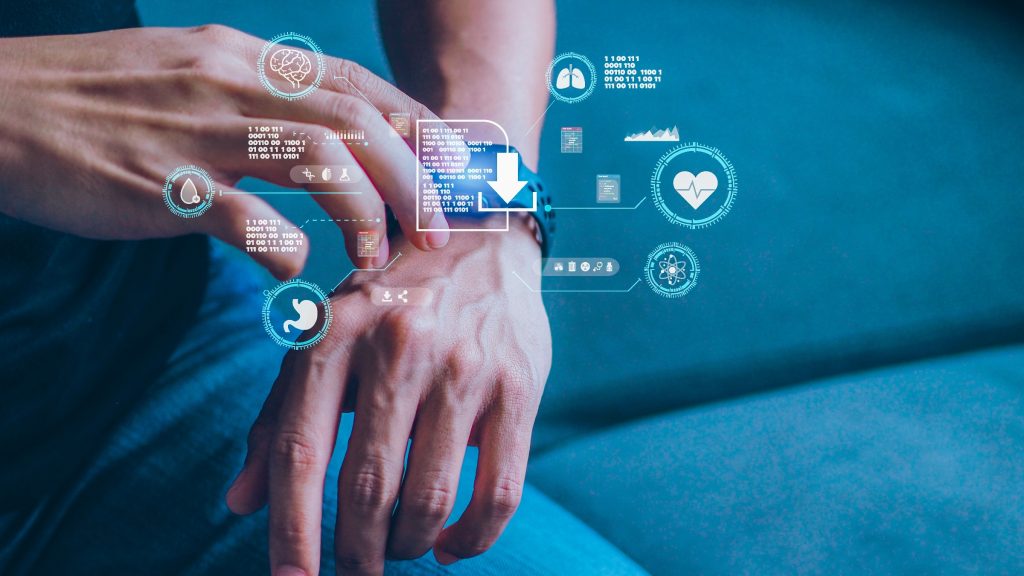Wearable technology has emerged as a game-changer in personal health and fitness, providing real-time insights into physical activity, heart rate, sleep patterns, and calorie expenditure.
When combined with artificial intelligence, these devices offer a highly personalized approach to weight management. AI interprets the data collected by wearables to create actionable recommendations, optimize exercise routines, and track progress over time.
Personalized Fitness Plans with AI
AI-powered platforms analyze data from wearable devices to generate individualized workout plans.
These plans consider factors such as age, fitness level, activity history, and goals to ensure exercises are safe and effective. Users can receive daily guidance on intensity, duration, and type of workouts to maximize fat loss and build muscle.
AI also identifies plateaus or overtraining risks, adjusting routines to keep progress consistent. This dynamic approach helps users maintain motivation and achieve measurable results over time.
Nutrition and Calorie Management
Wearables integrated with AI platforms can monitor caloric intake, nutrient consumption, and hydration levels.
By analyzing eating patterns and activity levels, AI can recommend optimal meal plans to complement exercise routines. Users are alerted when they deviate from their goals, allowing timely adjustments to maintain progress.
In addition, AI can identify behavioral patterns, such as emotional eating or skipped meals, and suggest strategies to overcome these challenges. This combination of data-driven insights and behavioral coaching enhances long-term adherence to healthy habits.
Sleep and Recovery Optimization
Quality sleep is critical for weight management, and wearables track sleep duration, quality, and cycles.
AI analyzes sleep patterns to determine how rest affects metabolism, appetite, and exercise performance. Recommendations may include adjustments to bedtime, morning routines, or relaxation techniques to improve recovery and optimize energy levels.
By ensuring adequate recovery, AI helps users maintain consistent workouts, reduce injury risk, and support metabolic health.
Behavioral Insights and Motivation
AI not only monitors physical metrics but also provides insights into behavioral trends.
It identifies habits that may hinder weight loss, such as sedentary periods, irregular meal timing, or inconsistent sleep. Users receive personalized reminders and motivational prompts to stay on track, creating an environment conducive to sustainable lifestyle changes.
Behavioral insights empower users to make informed decisions, reinforcing accountability and promoting long-term success.
Integration with Smart Devices
AI-enhanced wearables often integrate with smartphones, fitness apps, and home devices for a seamless experience.
This ecosystem allows users to track progress, set goals, and receive notifications across multiple platforms. Integration also provides a more holistic view of health, combining activity, nutrition, and lifestyle data into actionable insights.
Such connectivity ensures that recommendations are precise, adaptive, and tailored to each individual’s routine.
Challenges in AI-Driven Wearables
While AI wearables provide significant advantages, challenges remain. Accuracy depends on proper device usage and high-quality data. Malfunctioning or poorly calibrated devices can lead to incorrect recommendations.
Privacy and data security are also essential, as personal health information must be protected. Users should choose platforms that comply with industry standards and regulations.
Additionally, wearables cannot replace human expertise. Fitness trainers, nutritionists, and healthcare professionals provide essential guidance, motivation, and accountability that AI complements rather than replaces.
Future Trends in AI and Wearable Technology
Experts predict AI wearables will become increasingly sophisticated, incorporating features like predictive analytics, real-time coaching, and emotional recognition.
Future devices may anticipate plateaus, detect stress or fatigue, and suggest personalized interventions before issues arise. Gamification, augmented reality, and immersive experiences will make workouts more engaging and motivating, encouraging adherence to healthy routines.
As AI technology evolves, wearables will play a central role in helping individuals achieve long-term weight management and overall wellness.
FAQs
How do AI wearables improve weight loss?
They provide personalized guidance on workouts, nutrition, sleep, and recovery, optimizing progress based on real-time data.
Are wearable devices accurate for tracking fitness?
Accuracy depends on the device and proper usage, but most modern wearables provide reliable data for AI-driven recommendations.
Can AI replace a personal trainer?
AI supports guidance and tracking but should complement human expertise for accountability and personalized coaching.
Do wearables monitor sleep effectively?
Yes, most AI-enhanced wearables track sleep duration, quality, and cycles, helping optimize recovery and energy levels.
Is my health data safe with AI wearables?
Platforms should comply with privacy standards and regulations, ensuring secure storage and responsible use of personal health information.
Conclusion
AI-powered wearables are transforming weight management by providing personalized insights, tracking progress, and enhancing motivation.
By integrating data from physical activity, nutrition, and sleep, these devices enable users to make informed decisions, maintain healthy habits, and achieve sustainable results. As technology advances, AI wearables will continue to revolutionize how individuals approach fitness and wellness.

